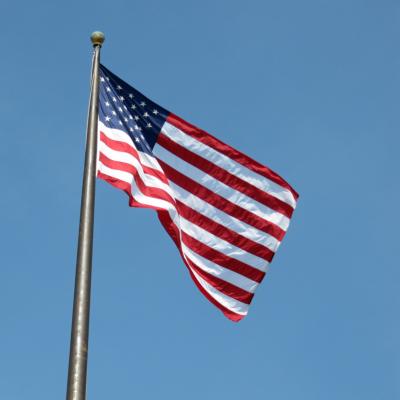The Pledge of Allegiance: Patriotism or Un-American?

Since the beginning of time, society has taught us to conform to certain ritualistic ideals. Examples of this can be found in a cultural sense; the distinction of how boys are raised differently than girls, a religious sense; how we are brought up to believe from our parents in a higher power other than ourselves, a historical sense; the celebration of honoring those who made contributions / sacrifices in making the world a better place to live, whether it’s serving in the military, the civil rights era, or the discovery of the moon. Another example of how society has taught us to conform to certain ritualistic ideals would be in our schools. Such is the case with the reciting of “The Pledge of Allegiance”. Without knowing exactly the first time I learned those words or what they meant for that matter, I do remember being in grade school, standing at my desk with my hand over my heart, looking towards the flag, and reciting the words. How, where, and who taught me the pledge, I honestly can’t answer; however I remember feeling like it was almost a rite of passage in reciting them.
Imagine as a child, without really understanding its full implications, it was look upon as un-patriotic not to recite the Pledge of Allegiance. Society has conditioned us to believe we are patriots first and anything that is opposite of that is un-American! The lines between Government having a say in what gets taught in our schools and families making the decision as to what can be taught to their children in schools, have become a blur. The Government has a tendency to skew the Constitution to get society to conform to such ritualistic ideals like the reciting of the Pledge of Allegiance without society questioning the “why’s or why not’s”. As Anna Quindlen states, “attempts to make the pledge sound like a cross between the Ten Commandments and the Constitution are laughable, foolish, and evidence of the basest sort of political jingoism”.
The political atmosphere today is such; that you have to walk around wearing your patriotism on your sleeve. Is it really unpatriotic or un-American to not recite the Pledge of Allegiance or know them? Half of Americans, if asked, couldn’t tell you what the words to the Pledge of Allegiance means. In the information age of today, it can easily be accessible by googeling it. The “Pledge of Allegiance”, just like “Lift Every Voice and Sing” is more of an allegory or symbolism of what America represents; a united country, religious freedom, and unity. Although those are all good values to live by, not knowing the words or meaning to the Pledge of Allegiance, doesn’t make you any more un-American than it makes me more patriotic. Simply put, there isn’t a real need to have a Pledge of Allegiance. Having a Pledge of Allegiance can conflict with some people’s values – the very ones I cite the Pledge represents. As children, we shouldn’t be allowed to be taught the Pledge of Allegiance; as we don’t even understand what its true meaning until we’re older. The decision to learn the Pledge should be of the parents and the parents alone; not the Government or the public school system.
The true meaning of America is freedom of democracy and freedom of choice. America is the land of the free and the brave. Being “conditioned” to learn words and recite them when you don’t fully understand its meaning doesn’t make me any more patriotic, than it does you un-American!
When you subscribe to the blog, we will send you an e-mail when there are new updates on the site so you wouldn't miss them.


Comments